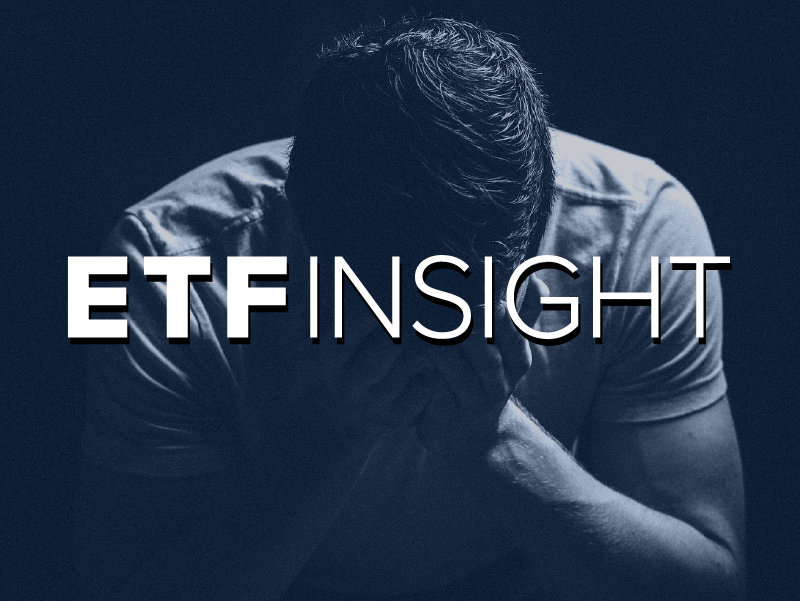The majority of wealth managers are continuing to choose mutual funds, investment trusts and stocks over ETFs as their main investment vehicles amid ongoing challenges with platforms, regulation and legacy technologies.
Last month, the world’s largest asset manager BlackRock predicted ETFs and index funds in UK wealth portfolios will increase by 50% over the next two years.
Following analysis on over 600 portfolios, the US giant estimated assets in ETFs and tracker funds would jump by $500bn to $1.7trn, an increase from 20% of UK wealth portfolios to 30% by 2021.
At the time, Joe Parkin, head of iShares UK at BlackRock, said: “We have reached a pivotal moment in the UK investment story. There is growing recognition that many of the habits and processes that have got us to where we are today have become outdated and will not meet the needs of clients in the future.”
There is no doubt discretionary fund managers (DFMs) have become a vital target for ETF issuers since the introduction of the retail distribution review (RDR) in 2012 which led to more IFAs outsourcing client assets to DFMs and centralised investment propositions.
However, for many DFMs, ETFs still only make up a small proportion of their portfolios.
One key stumbling block for ETF uptake is many DFMs believe they can select the outperforming active managers because of their qualitative and quantitative research skills.
As Rory McPherson, head of investment strategy at Psigma Investment Management, who currently has around 13% in ETFs, explains he believes good active managers will outperform and following that, he has the ability to find them.
“This is why we do not own much passive,” he continued. “Currently we only have passive exposure to UK equities and gold mining stocks.”
Furthermore, McPherson added the firm is able to secure “very attractive” fee deals for funds because they take concentrated positions in managers.
One of the main benefits of ETFs has been the ability for investors to drive down overall costs, however for McPherson, this is somewhat moot point because Psigma is able to reduce the fees they pay for active managers.
Arguing against this, James McManus, head of ETF research at Nutmeg, bemoans the fact there are some DFMs who continue to prefer active management, despite the “overwhelming” evidence that it is difficult to pick managers that consistently outperform.
For McManus, there remains a lack of education around ETFs among wealth managers and this is having a major impact on uptake.
“ETFs are still largely misunderstood by many DFM investors,” he said. “Very few, for example, would see significant differences in a UK index fund versus a UK ETF.
“They clearly have a layer of complexity that mutual funds do not have such as a secondary market and the need to trade them OTC in large size (which requires expertise/set-up in itself) so there is an educational journey for those investors who are less familiar with them.”
Along with the education piece, there are a number of structural issues in the UK market which are causing wealth managers to not invest in ETFs.
One crucial problem is a number of investment platforms in the UK still do not support. This issue has been well documented over the past few years, however, some platforms have still not invested in the technology required to trade ETFs intra-day claiming the demand is simply not there.
Richard Philbin, CIO of Wellian Investment Solutions, said the issues around fractional trading and dealing costs has meant his ETF exposure remains low.
If these problems with the platforms were solved, he added his exposure would “rise dramatically” from current levels.
Echoing his views was Peter Sleep, senior investment manager at 7IM, who argued the “prohibitively high” trading costs were discouraging the use of ETFs and forcing DFMs to use trackers or active funds.
Furthermore, he noted the difficulty of getting new funds set up on platforms with issues around legal agreements between an issuer and a platform taking up to two years in some cases.
McManus said technology is also a problem for wealth managers as DFM portfolio management tech is not being optimised for ETFs in some cases.
Another factor highlighted by Kenneth Lamont, passive research analyst at Morningstar, is the lack of incentives to invest in ETFs compared to the US.
Across the pond, there is a major tax advantage for investing in ETFs over traditional mutual funds which does not exist in Europe meaning wealth managers are not incentivised in quite the same way to switch over compared to advisers in the US.
DFMs have many different investment vehicles to choose from when gaining exposure to an asset class and it appears the benefits of the ETF structure has only really sunk in over the past few years.
While it appears the trajectory of ETF uptake is only going one way, the pace remains unclear with a number of barriers to entry including platform issues, education and regulation.
ETF Insight is a new series brought to you by ETF Stream. Each week, we shine a light on the key issues from across the European ETF industry, analysing and interpreting the latest trends in the space. For last week’s insight, click here.



